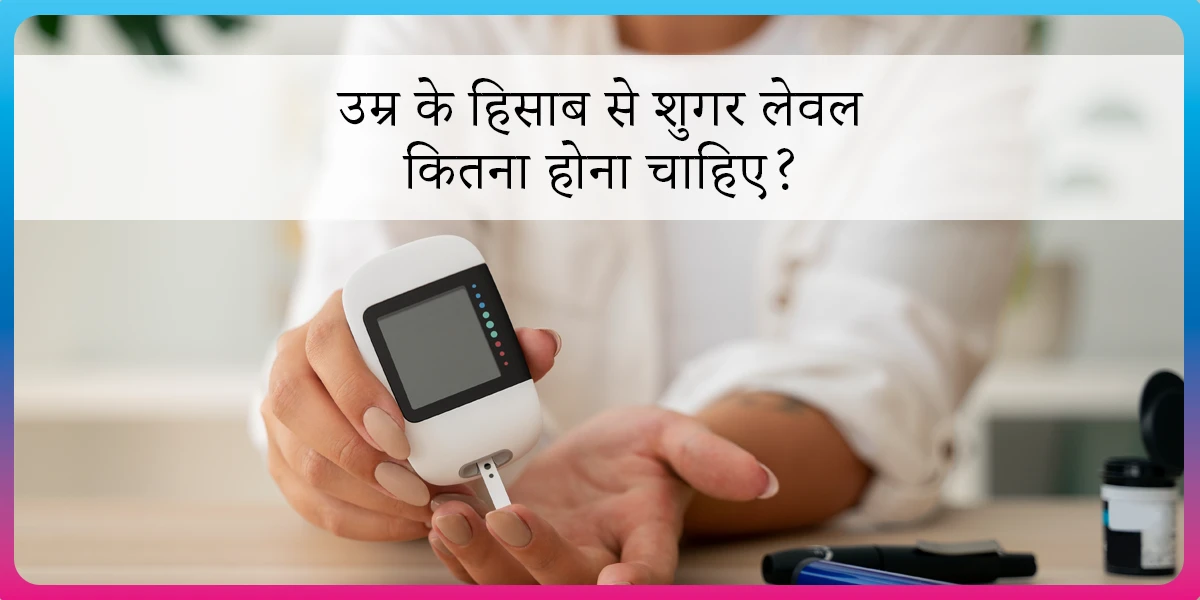
For many of us living with diabetes, every bite we take comes with questions, especially when it comes to fruits because of their natural sweetness. Take pomegranates, for example: Is this beautiful, ruby-like fruit just about taste, or could it actually benefit your diabetes?
Find answers to these questions and more in this blog.
What is the Glycemic Index or GI of Pomegranate?
The Glycemic Index (GI) is a system that assigns a number or numeric value to foods based on how much carbohydrate they contain and how quickly eating each of these can raise your blood sugar levels.
The glycemic index of pomegranates is approximately 18, which is low. This is categorised as a low GI score and is considered safe for people with diabetes to consume.
Is Pomegranate Good for Diabetes?
The glycemic index (GI) of pomegranates is low GI e and is considered safe for people with diabetes to consume.
The pomegranate is a good source of potassium, folate, and dietary fibre therefore, it is one of the fruits which is good for regulating blood sugar and heart health.
Pomegranates have potent immune-stimulating minerals. These are E, C, and K vitamins, which contribute to overall well-being.
To know your chances of Diabetes reversal, take the Diabetes Reversal TestDiabetes Reversal
Calculator
What is the Nutritional Value of Pomegranate?
As per Indian Food Composition Tables (IFCT – 2017), 100 grams of pomegranate, which would approximately be – half of a small pomegranate, contains:
| Nutrient | Nutritional Value (Per 100 g) |
| Energy | 55 kcal |
| Carbohydrate | 12 g |
| Protein | 1 g |
| Calcium | 11 mg |
| Phosphorus (P) | 27 mg |
| Total Fiber | 3 g |
| Potassium | 206 mg |
| Natural Sugar | 11 g |
This is where pomegranates play a great role.
They are packed with antioxidants like polyphenols, which combat oxidative stress* and inflammation, which are common challenges for people with diabetes.
| Did You Know?
In our bodies, there are many harmful substances, such as pollutants or toxins, which are also known as free radicals. To remove these free radicals, our body needs antioxidants. When there are not enough antioxidants in our body, it leads to oxidative stress, which can harm cells and cause health problems like diabetes, heart disease, ageing, and even some types of cancer. |
Will Pomegranate Increase Blood Sugar?
Pomegranate has a low glycemic index, so it may not cause a significant rise in blood sugar when eaten in moderation. However, like any food, eating too much or what you eat along with it can lead to an increase in blood sugar levels. So, do keep that in mind.
What are the Health Benefits of Pomegranate in Diabetes?
Pomegranates have many health benefits for people with diabetes when eaten in moderation. Here’s how it helps:
- Keeps Blood Sugar Stable: Pomegranate has a low glycemic index of about 18, which means it raises blood sugar slowly, making it a safer option for people with diabetes.
- Helps Insulin Work Better: The natural antioxidants in pomegranate can improve how well your body uses insulin to manage blood sugar levels.
- Fights Cell Damage: Pomegranate is rich in antioxidants that protect your cells from damage caused by diabetes and lower the risk of complications.
- Reduces Inflammation: Diabetes can cause swelling and damage in the body. Pomegranate helps reduce this inflammation, especially in the heart and blood vessels.
- Protects the Heart: People with diabetes are more likely to have heart problems. Pomegranate helps lower cholesterol, reduce blood pressure, and keep blood vessels healthy.
- Improves Cholesterol Levels: It lowers bad cholesterol (LDL) and increases good cholesterol (HDL), which is good for people with diabetes.
- Supports Healthy Weight: Pomegranate can help with weight management by improving digestion and reducing cravings, which is important for managing diabetes.
Other Health Benefits of Eating Pomegranate
Pomegranate is not only beneficial for diabetes but also offers a range of health benefits for overall well-being:
- Boosts Immunity: Packed with vitamins C, E, and K, pomegranate strengthens the immune system and helps the body fight infections.
- Improves Digestion: Its high fiber content supports healthy digestion and prevents issues like constipation.
- Supports Skin Health: Pomegranate’s antioxidants protect the skin from damage caused by UV rays and pollution, keeping it healthy and glowing.
- Aids in Cancer Prevention: Pomegranate contains compounds that may help slow the growth of cancer cells, particularly in prostate, breast, and colon cancers.
- Promotes Joint Health: Its anti-inflammatory properties can help reduce symptoms of arthritis and joint pain.
- Enhances Memory: Some studies suggest that pomegranate may improve memory and cognitive function, making it beneficial for brain health.
- Supports Reproductive Health: Pomegranate may improve fertility and overall reproductive health in both men and women due to its nutrient-rich profile.
REVERSED Diabetes in 3 months


5.7%
Happy members
EMI
Guarantee
4.8/5
Diabetes Prime Program
4 Ways to Eat Pomegranate in a Diabetes Diet
Pomegranates are not only delicious but also versatile, making it easy to include them in your daily diet. Here are some simple ways to enjoy them:
- Eat as Whole Seeds: Scoop out the juicy seeds (arils) and enjoy them fresh as a snack. They’re a burst of flavour and nutrition in every bite.
- Sprinkle on Salads, Chaat, Curd Rice: Add pomegranate seeds to your fruit chaat or salads to enhance the taste and make your meals more colourful and nutritious. You can even add it to curd rice to give it an amazing twist.
- Anar ki Chutney: A tangy and flavorful chutney made with pomegranate seeds, mint, coriander, green chillies, and spices, perfect as a dip or side dish with snacks or meals.
- Raita: Add pomegranate seeds to curd (yoghurt) with a pinch of salt, roasted cumin powder, and coriander for a refreshing and nutrient-rich raita.
How Much Pomegranate Can a Person with Diabetes Eat?
People with diabetes can typically consume about ½ to 1 cup (approximately 100–150 grams) of pomegranate seeds in a day as part of a balanced diet. This portion provides nutrients and antioxidants without causing significant spikes in blood sugar when eaten mindfully.
What is the Difference Between Having Pomegranate Fruit v/s Juice?
Eating whole pomegranate is much better than drinking its juice, especially for people with diabetes. When you eat the whole fruit, the chewing process helps you feel fuller, and you get the most nutrients, along with dietary fiber, which slows down sugar absorption and prevents blood sugar spikes.
On the other hand, juicing removes the fiber to make a single medium glass (200–250 ml) which can spike your blood sugar levels easily. Many times, people add sugar, salt or other fruit juices too to enhance the taste, which is not good, especially for those with diabetes, as it can cause unnecessary blood sugar fluctuations and increase sodium intake.
When is the Best Time to Eat Pomegranate?
It’s always best to have any fruit as a part of your mid-morning, 4 pm or early evening snack and not to combine it with your main meals. This holds true for pomegranates, too. Enjoy them in between meals 😊.
How We At Fitterfly Can Help You?
We understand that managing diabetes can feel overwhelming, especially when it comes to choosing the right foods. At Fitterfly, we believe that you shouldn’t have to give up the foods you love, like pomegranates, just because you have diabetes. Instead, with the right guidance and support, you can enjoy them in a way that fits your health goals.
That’s where Fitterfly comes in. Whether it’s about portion sizes, the right combinations, or the best times to eat pomegranates, we provide insights that empower you to take control of your health. Our expert nutritionists work with you to create a personalized plan that helps you include nutritious foods like pomegranates without worrying about sudden spikes in your blood sugar levels. By taking a scientific approach to meal planning, and considering your unique blood sugar responses, lifestyle preferences, and dietary habits – we help you enjoy your favourite foods mindfully and confidently.
However, managing diabetes is about more than just food. Our holistic diabetes management program also focuses on fitness and stress management, helping you adopt sustainable habits for long-term well-being. Our expert coaches work with you every step of the way, offering guidance that makes it easier to stay on track and achieve your health goals.
With Fitterfly, diabetes management becomes less about restrictions and more about balance and smart choices. Our goal is to equip you with the right tools, knowledge, and support to manage your diabetes in the best way possible while still enjoying the foods you love.
And that’s exactly what our Fitterfly Diabetes Prime Program is designed to do. It offers a complete solution to diabetes management, combining personalized nutrition, fitness, and stress management strategies tailored just for you. Ready to take the next step? Call us at 08068507599 to learn more.
This blog provides general information for educational and informational purposes only and shouldn't be seen as professional advice.
Frequently Asked Questions
Does pomegranate increase blood sugar?
Pomegranates, when consumed in moderation, are unlikely to cause a significant rise in blood sugar. They have a low glycemic load and contain fiber, which helps manage blood sugar levels.
Who should not eat pomegranates?
People with allergies to pomegranates should avoid them. Additionally, those taking blood-thinning medications or certain prescription drugs should consult their doctor, as pomegranates can interact with these medications.
Is pomegranate juice too high in sugar?
Yes, pomegranate juice can be high in sugar, especially if it’s commercially processed or if additional sugar is added. Even freshly squeezed juice lacks the fiber of the whole fruit, leading to quicker sugar absorption and potential blood sugar spikes.
What are the side effects of pomegranate?
Pomegranate is generally safe to eat, but having too much can sometimes cause digestive issues like bloating or diarrhoea. It may also interact with certain medications, such as blood thinners (like warfarin) or medicines for blood pressure (like ACE inhibitors). If you’re taking these, it’s best to check with your doctor before consuming a lot of pomegranate or its juice. As with any food, moderation is key to enjoying its benefits safely.
What is the recommended daily consumption of pomegranates for individuals with diabetes?
The recommended daily intake for people with diabetes is about ½ to 1 cup (100–150 grams) of pomegranate seeds. This portion ensures a balance between enjoying its health benefits and managing blood sugar levels effectively.





















